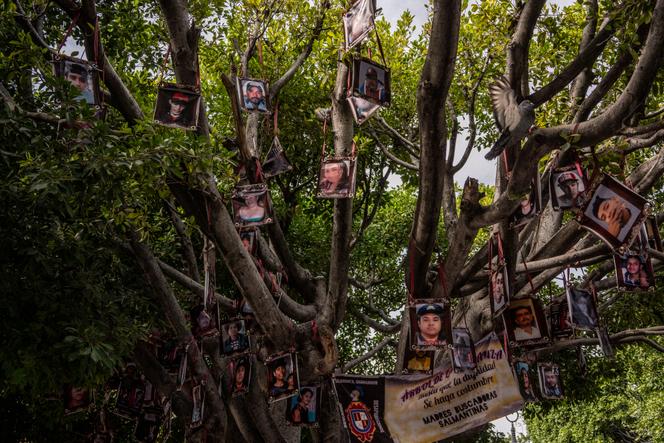


After spending more than five years searching for her missing brother, Lorenza Cano fell victim to a horrifying event. On the night of January 15-16, a group of armed men broke into her home in Salamanca, a town in the state of Guanajuato, in central Mexico. They murdered her husband and son and kidnapped the 55-year-old woman. She is now missing, as are at least 132 people in Salamanca, 4,000 in Guanajuato, and over 114,000 nationwide.
In the midst of this widespread tragedy − a product of the "war against drug-trafficking" that has caused over 450,000 deaths in Mexico since 2006 − Cano's disappearance has provoked an outpouring of anger: Amnesty International has demanded her release, and the UN Committee on Enforced Disappearances has called for "urgent action" to ensure that the state produces results.
The activist is one of thousands of "searching mothers" in Mexico, women who have become like investigators to compensate for the government's inability to stem the swelling tide of disappearances or locate victims. They visit morgues and mass graves, hold authorities to account and comb the hills and wastelands in the hope of discovering illegal graveyards. They dig up bones, amputated limbs and mutilated bodies in advanced stages of decay, then hand them over to forensic pathologists for identification and restoration to their families.
Cano was one of the first to join the organization Salamanca United in the Search for the Disappeared, which has 260 members. Alma Lilia Tapia founded the group in 2020, after spending two years searching for her son, who is still missing. She knows that his body is buried somewhere along with 57 others: She received the information via an anonymous message that included the photograph of a face so disfigured it was unrecognizable, but on which she was able to recognize the scars that he bore on his chin. The picture had a "terrible impact." Her youngest son has never recovered psychologically from his brother's disappearance.
When Le Monde met her on Thursday, January 25, on the outskirts of Salamanca, the 50-year-old former high school physical education teacher was getting out of a van with three other women. They were tired and their boots were white with dust after an unsuccessful search. On this day yet again, the fates of the 206 people sought by the group would remain in limbo. But the mothers aren't giving up. They frequently find bodies, and sometimes they are able to intervene in time and save lives: They recently located three teenage girls who had been kidnapped and promised to trafficking networks.
You have 65% of this article left to read. The rest is for subscribers only.
